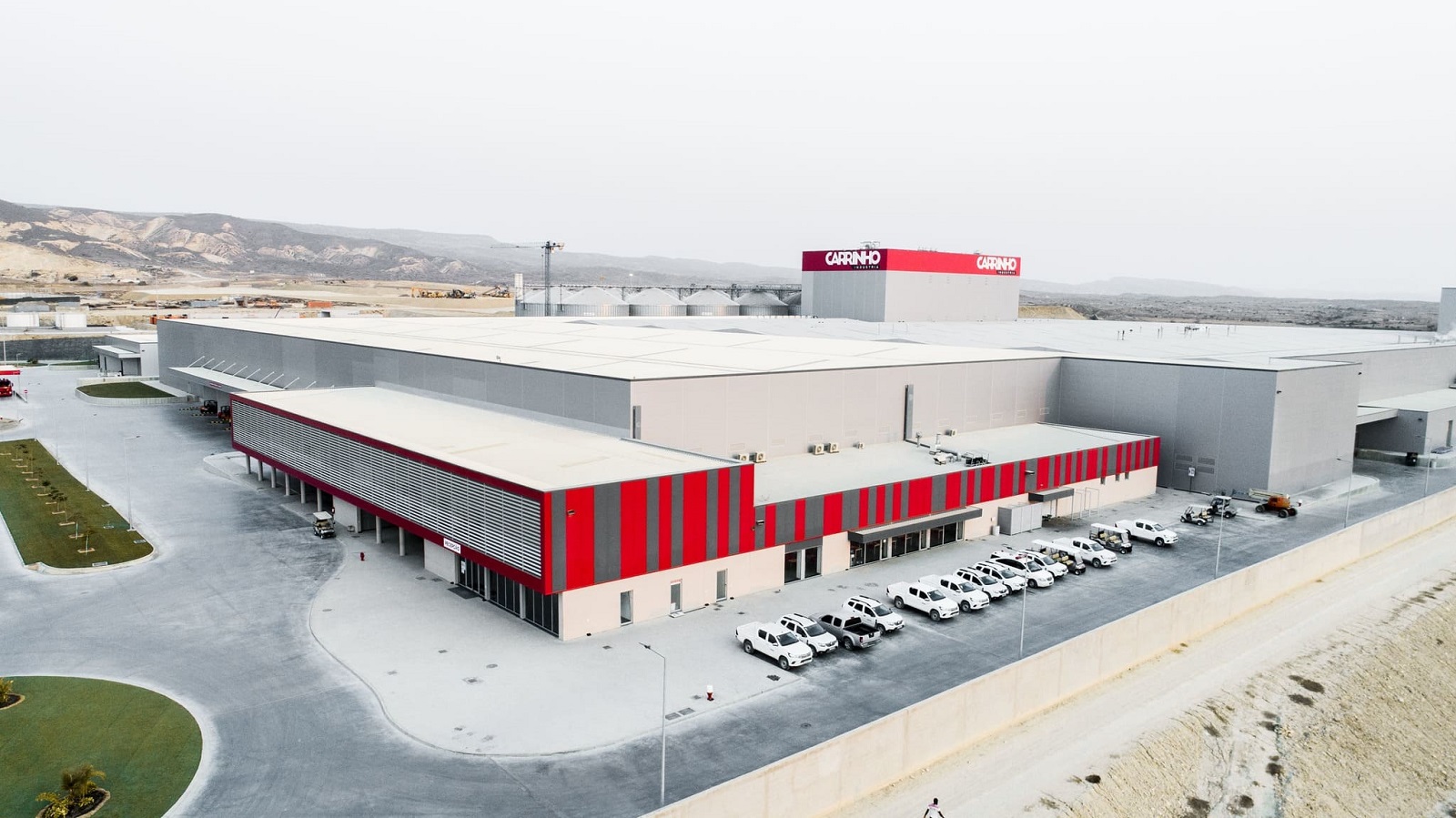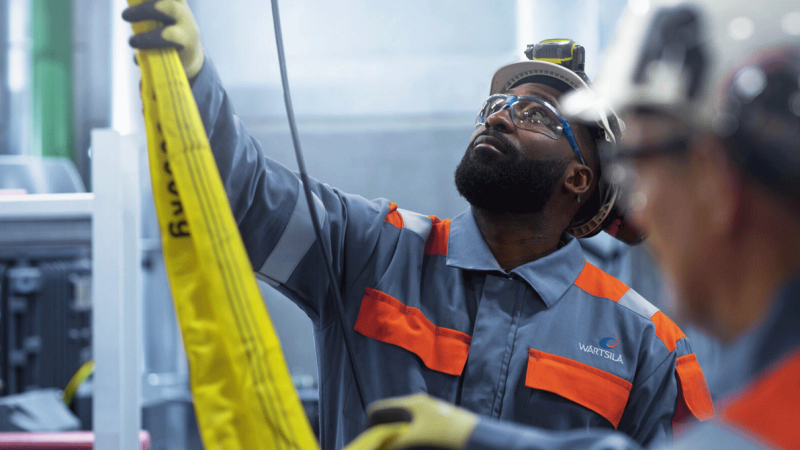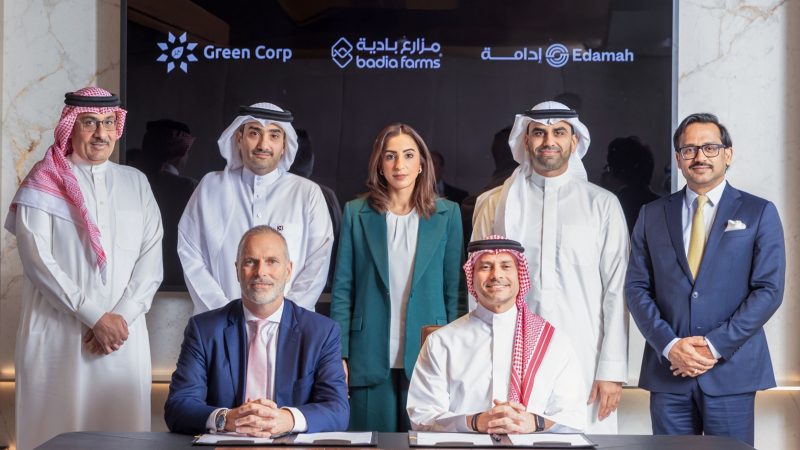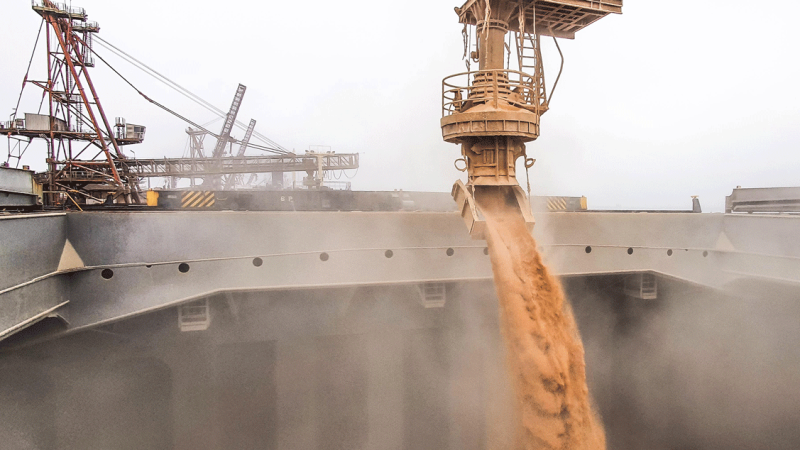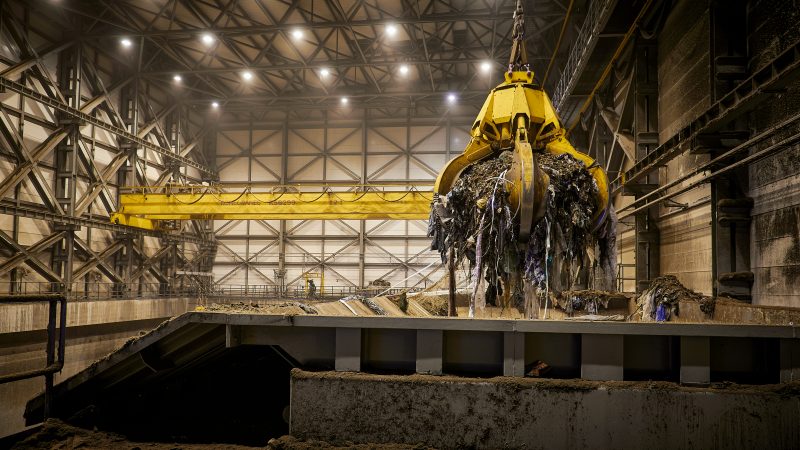Carrinho is a food manufacturing company committed to developing the first vertically integrated organisational structure in the Angolan food industry. Both proudly Angolan, and proudly family-owned, Carrinho’s goal is to manage every stage of the value chain, from origination to transportation to storage, manufacturing and distribution.
The Group as a whole is divided into three sectors, each taking charge of a separate part of the value chain. There is an agriculture company, handling the raw materials, a commercial company, handling the market-facing side of the business, and finally Carrinho Industrial, which is responsible for processing and manufacturing Carrinho’s food products.
Each of these three companies has its own CEO, and Décio Catarro, is the CEO of Carrinho Industry, as well as a board member of Carrinho Holding.
“I am in charge of the entire food manufacturing arm of the Group,” Catarro tells us. “We have 17 different plants producing wheat and maize meals, rice plants, pasta plants, breakfast cereals and all kinds of grain products. We have another factory producing oil and fats, equipped with two refineries for edible oil, with the capabilities to refine soya beans, palm oil, sunflower and other kinds of seed oils. Apart from that, we have lines to fill all these edible oils, as well as mayonnaise, ketchup, a condensed milk plant, and a margarine plant.”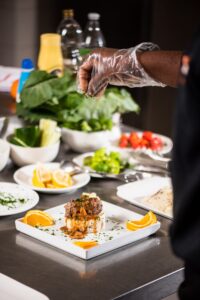
This manufacturing base is supported by the largest storage infrastructure in Angola, with capacity for 100,000 tons of cereals and 55,000 cubic metres of crude vegetable oil products. Carrinho Industry transforms raw materials into products which go to Carrinho Commercial to sell to the market through three different routes. These include street markets, supermarkets and storage companies that will sell to other customers.
Across these sales channels, Carrinho has almost every angle of the food market covered.
“We have two wheat mills with a capacity of 100 tons a day, two maize mills with a capacity of 800 tons per day, a rice plant with a capacity of 720 tons per day, and a pasta plant with six lines of pasta and 26-ton per-hour capacity,” Catarro tells us proudly. “After that, we also have a biscuit plant making all kinds of biscuits, every kind you can imagine, with a capacity of 60 tons per day and another plant for breakfast and other cereal products. We also make some baby foods.”
Bringing the Supply Chain Home
Carrinho’s vertically integrated business is supported by a network of direct relationships with local partners, commodities producers, and raw materials producers. Those relationships are central to Carrinho’s work developing a solid food industry for Angola. But talking to Catarro, it is clear that he wants to achieve more.
“Our big challenge is to have our own raw materials sourced from inside the country rather than importing these products,” Catarro tells us. “We are talking about developing a food manufacturing park with a total capacity of 1.5 million tons of production a year, and we want to source the raw materials that will feed it locally.”

Currently, Carrinho imports much of its wheat and other products from suppliers in France, Germany and elsewhere, while its soya comes from Brazil but the company is already developing some homegrown supply chains for some products.
“For maize, we have already started producing in Angola. We are transforming our supply chain and do not import that anymore,” Catarro says.
At the same time as working to source its ingredients closer to home, Carrinho is also on a mission to source more local talent.
“Right now in the industry branch of Carrinho, we have around 2,000 people. Of these, we are using around 50 ex-pats and we intend to change that,” Catarro tells us.
It is a particular challenge given just how modern Carrinho’s manufacturing infrastructure is.
“We don’t use the skills and people this industry usually has in place already because our plants are completely automated,” Catarro points out. “We have moved into Industry 4.0. We have a food park in Angola just like you would find in England or Germany. Unfortunately, that requires skills that we do not have enough of in Angola yet, so we import some skilled people but bring them in to train local young people with the necessary skills.”
Expanding Production
Carrinho will need every one of those new trainees, as the company has big plans for its production facilities, with plans for not one, but two major new manufacturing plants on the horizon.
“One of them is a crushing plant for soya and sunflowers because our agriculture company is developing these kinds of crops,” Catarro explains. “In two years’ time, we will have enough Angolan sunflower seeds and soya beans for that plant. This plant will have 4,000 tons of capacity per day of soya and 2,500 tons of sunflower capacity.”
This plant is set to be inaugurated in 2025 to receive Angolan grain and crush soya and sunflower seeds to make extracted crude oil for Carrinho’s refineries. That is alongside a new sugar refinery that will process up to a capacity of 3,000 tons of raw sugar per day.
“We are projecting that in the next four years, we will develop a new complex like we have in the south of Angola, but with some different products,” Catarro says. “We are planning a new food complex for North Angola with double the capacity.”
All of this is working towards one goal. A truly vertically integrated Angolan food company, from agriculture to commerce.
“Our project is to take our company to a place where it can produce or create production for the raw materials on the land, process it through manufacturing and sell it to the market,” Catarro says. “We want to make Angola self-sufficient in terms of food. This is our vision and this is what we are doing for the moment.”
